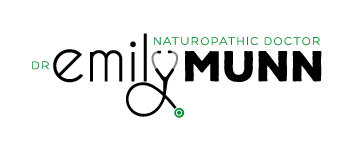An Anti-inflammatory Diet for Implantation Success
An anti-inflammatory diet as the name suggests is an excellent way to manage inflammation and decrease overall immune system stimulation when it comes to conception and implantation. Inflammation is actually at the core of most chronic diseases -diabetes, cancer, arthritis, dementia, cardiovascular disease, arthritis, and autoimmunity (Hashimoto’s thyroiditis, Lupus, Psoriasis, Rheumatoid arthritis, Celiac, and others). By eating an anti-inflammatory diet or at least decreasing your inflammatory food intake, you can help support a balanced immune response and extinguish unnecessary inflammation in your body. Conception and implantation down to the basic level is a chemical reaction. In natural conception, sperm meets egg, sperm penetrates and fertilizes egg, fertilized egg (zygote) travels down the fallopian tube to hopefully implant into a cushy, thick uterine lining to then burrow in and get cozy for about 9 months of development and growth. Inflammation ties in many ways with fertility including hormone balance, autoimmunity if any (thyroid, ovaries, uterus, other), and absolutely affects implantation in the uterus. You want some inflammation for the process of implantation to occur, but not too much. Cue an anti-inflammatory diet!
An anti-inflammatory diet is plant focused making it high in flavonoids, polyphenols and other antioxidants. Yay! It is also high in omega-3 fatty acids (EPA and DHA) and low in chemicals and preservatives.
General Rules for An Anti-Inflammatory Diet:
1) Eat the Rainbow -an anti-inflammatory diet is VERY colourful! Think salmon, blueberries, kale, yellow peppers, sweet potatoes, purple cabbage and other multi-hued foods. Foods rich in colour are FULL of antioxidants which quench oxidative stress in the body that damages cell health that can lead to infertility and chronic disease.
2) Eat Healthy Fats -an anti-inflammatory diet is NOT low fat. In fact, research has shown that a low fat diet is not great for many reasons. One example is from a 2007 study conducted by the Department of Nutrition and Harvard School of Public Health that found high intake of low-fat dairy foods may increase the risk of infertility whereas intake of high-fat dairy foods may decrease this risk (1). This study highlights how a low-fat option can be worse for our health than the full-fat, often more natural version; although, I do not recommend consuming cow’s dairy as it is an inflammatory food. We need fat in our diets, mostly polyunsaturated fats (especially omega 3, and some omega 6) from nuts, seeds, avocados, and cold water fish. Healthy fats are important for our brains, cell communication, and hormone production and balance.
3) Keep it Fresh -an anti-inflammatory diet is void of processed foods. Choose foods that are FRESH with the fewest ingredients possible (a true whole food). Commercial breads for example often have over 20 ingredients! Not good! Try to avoid food that is in a package and choose fresh versus frozen food especially when that food is in season. There is sadly a new term in the nutrition world known as “ultra-processed foods”. Not only do we collectively consume too many processed foods, we now consume up to 40% of our diet as “ultra-processed” food (2). Yikes. Keep it fresh and it will taste better, you will eat less and it will be higher in anti-inflammatory properties! Win-win-win.
In a nutshell (walnuts are very high in antioxidants by the way), an anti-inflammatory diet comprises plenty of fresh fruits and vegetables, little to no red meat, certainly no chemicals or additives, and an abundance of omega-3 foods like nuts, seeds, and cold water fish like salmon.
Resources:
1) http://www.ncbi.nlm.nih.gov/pubmed/17329264
2) https://www.nih.gov/news-events/news-releases/nih-study-finds-heavily-processed-foods-cause-overeating-weight-gain

